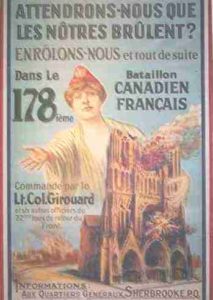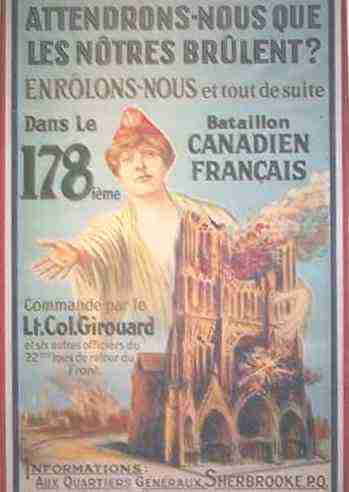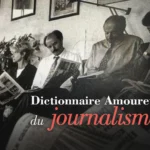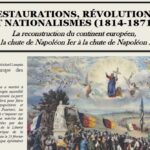Vous souhaitez lire la suite ?
Actifs dans le débat public sur l'enseignement de nos disciplines et de nos pratiques pédagogiques, nous cherchons à proposer des services multiples, à commencer par une maintenance professionnelle de nos sites. Votre cotisation est là pour nous permettre de fonctionner et nous vous en remercions.
Vous avez accès à la partie réservée aux adhérents des ressources des Clionautes. Tout partage, cession, en dehors des adhérents de ces documents originaux disposant du double copyright de l’auteur et des Clionautes constitue un vol de propriété intellectuelle. Par ailleurs, cela prive le mouvement des professeurs d’histoire-géographie des moyens indispensables pour défendre nos disciplines.
Nous espérons que vous y penserez, que vous aurez à cœur de proposer et de partager avec nous vos ressources et que vous n’obligerez pas notre mouvement à agir en justice.
L’article L335-2 du Code de la propriété intellectuelle dispose que :
« Toute édition d’écrits, de composition musicale, de dessin, de peinture ou de toute autre production, imprimée ou gravée en entier ou en partie, au mépris des lois et règlements relatifs à la propriété des auteurs, est une contrefaçon ; et toute contrefaçon est un délit […] ».
L’article L. 335-3 du même Code ajoute que :
« Est également un délit de contrefaçon toute reproduction, représentation ou diffusion, par quelque moyen que ce soit, d’une œuvre de l’esprit en violation des droits d’auteur, tels qu’ils sont définis et réglementés par la loi. […] ».

Source 2
[…] When on 4 August, 1914, the cables and the new wireless telegraph flashed the message `War’ across the Atlantic, Canada for the first time found herself flung into the midst of world affairs. Since the conquest of New France, great European conflicts had largely passed her by. Canada had been a remote colony, weak and dependent, with struggles of her own, but she had been kept securely distant from the quarrels of Europe by a wall of British sea power. Now the distant colony, no longer weak and struggling, entered a world of stern dangers and high responsibilities, the world she has been in ever since. This new stage brought sacrifice and heavy burdens for Canada. Yet with them came the rights of nationhood. Out of the vast world conflict Canada became a nation, a full partner in an empire that had been transformed into the British Commonwealth of Nations […]
When the war began there was no sign that it would endanger the national unity that had been built up in the (previous) era […]
French Canadian volunteers streamed in as readily as English-speaking Canadians. Never had Canada been more united than in preparing for the great conflict […]
But very soon racial disputes began to arise again. The fact that at first they were not even connected with the war only made them more tragic. There was another schools quarrel, this time in Ontario, where (a) new (legislation) sought to limit teaching in French in a few `border’ areas of the province inhabited by French Canadians […]
As French irritation grew, so did that of English Canada, because of reports that the French Canadians were falling behind in supplying men for the army. In some degree this was true. As calls went out for more and more volunteers, the rate of French enlistments declined. The French did not share the strong emotional drive to enlist that affected English-speaking Canadians. They viewed the war as a noble adventure, not as a life-or-death struggle. Their feelings for Britain were those of respect or thoughtful support, not of warm sentiment, and they had too long gone their separate way to feel deeply about Britain’s ally, France. In addition, they were a farming people, and farmers traditionally are harder to enlist than the less firmly rooted population of the towns […]
From J. M. S. Careless. Canada: A story of Challenge. Toronto: Macmillan, 1970, p. 323.
- Introduce the sources (briefly).(source 1 is… source 2 is…)
- Explain the term “she”. Which empire does the text refer to?
- Why was Canada involved in a European war?
- Explain the tensions between French and English Canadians during WW1.
- Was it a wise policy to vote a new legislation at the very beginning of a war to limit teaching in French?
- What was the reason for the rate of French enlistment to decline?
- Explain how the Canadian authorities tried to convince French Canadians to enlist.














